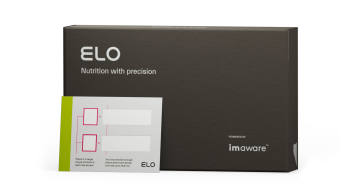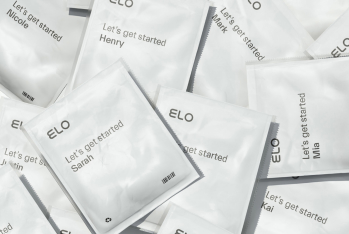Everything you need to know about protein shakes
Protein shakes are a convenient supplement that have been shown to aid in muscle growth, performance, and recovery. But are protein shakes actually good for you, what are the best times to take them, and how much should you have? Here’s everything you need to know about protein shakes.
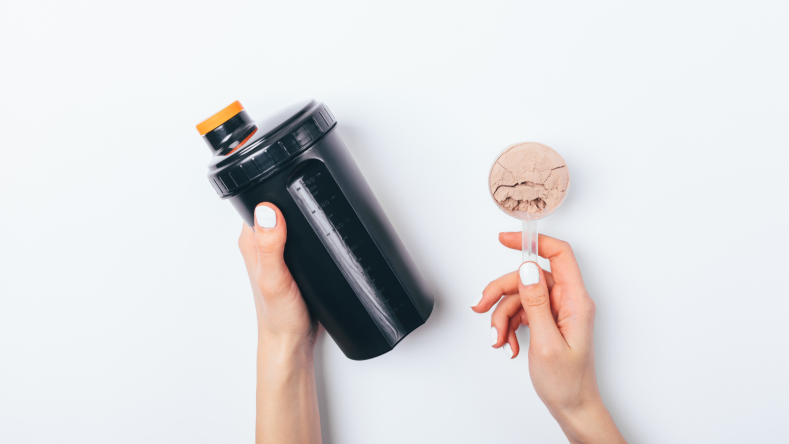
Contents
What is protein powder? Protein recommendations What are the best types of protein powder? When to drink protein shakes Do protein shakes make you gain weight without working out? Should you take a protein shake before bed? How to blend a perfect recovery protein shake Other FAQs about protein Summary Key takeawaysWhether you’re a recreational gym-goer or an elite athlete, chances are you’ve tried a protein shake or two at some point. And even though this type of supplement is quite popular in the fitness community, you may be wondering if it’s worth the hype.
To help unravel fact from fiction, we’ve turned to science to better understand how protein shakes impact recovery and performance. From nutrient timing to potential benefits, here’s what science has to say about protein shakes.
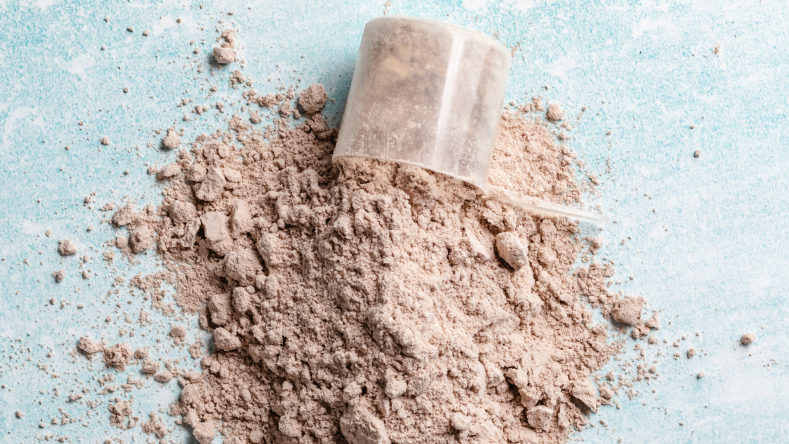
What is protein powder?
Protein is an essential macronutrient that plays a vital role in strength, lean muscle mass, post-workout recovery, and satiety [ 1 2 dietary sources
Protein powder
When combined with a healthy diet, protein shakes are a convenient and cost-efficient way to boost protein intake and meet your nutrient needs.
How much protein can your body absorb?
The amount of protein your body can absorb at once is partly based on muscle protein synthesis, which is how the body maintains and builds muscle [ 3 4
Protein recommendations
The Dietary Reference Intake (DRI) for protein for adults* is as follows:
Men and women: 0.8 g protein/kg of body weight/day [
5
]Over 65 years old: 1 to 1.2 g protein/kg of body weight/day [
6
]Athletes and highly active individuals: 1.2-2.0 g/kg of body weight/day, depending on training needs and goals [
7
]
*These numbers will vary depending on your activity level, age, and other needs. Talk with a dietitian or your healthcare provider to see what is right for you.
How much protein to build muscle?
Experts suggest that 1.2-1.7 g of protein/kg of body weight/day can be beneficial to increase muscle mass [ 8
However, more isn’t always better; research shows that 1.6 - 2.2 g of protein/kg of body weight/day can greatly diminish the effects of protein, as large amounts may modulate anabolism by suppressing protein breakdown (proteolysis) [ 9
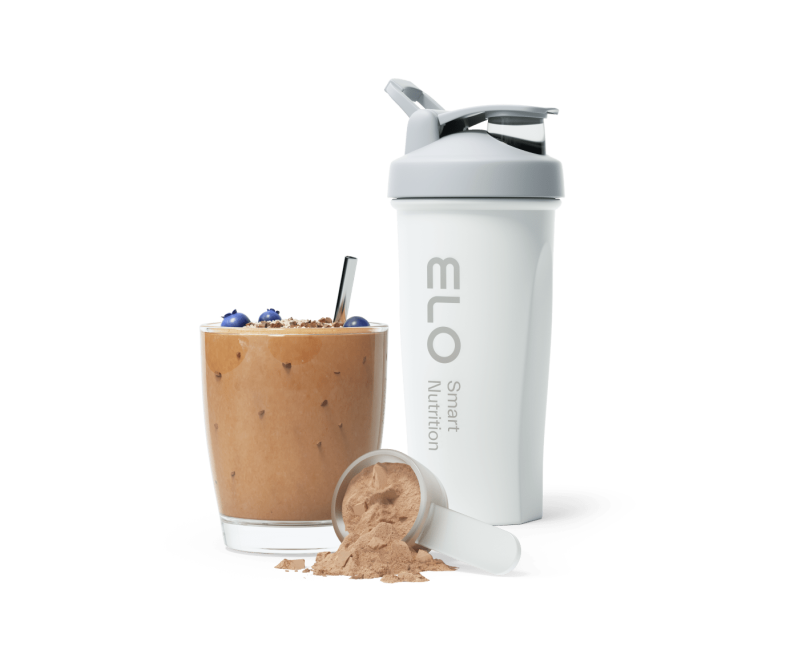
What are the best types of protein powder?
The best types of protein powder are ones that are high quality, backed by science, and meet your dietary and nutrition needs.
Elo Smart Protein
Elo Smart Protein is also backed by the latest science to help you recover faster and get the most out of every scoop of protein powder. Try it out for yourself today
When to drink protein shakes
To get the most benefit from protein shakes, you may want to consider timing your protein consumption depending on your goals.
For instance, if you’re looking to repair muscle and enhance recovery, science shows that consuming 20-40 g of high-quality protein within two hours of exercise can stimulate robust increases in muscle protein synthesis [ 10
However, if you’re looking to lose weight, then you may want to consider drinking protein shakes at meal times. Research suggests consuming 25-30 g of quality protein at breakfast, lunch, and dinner may benefit weight loss by improving energy metabolism, protein synthesis, and appetite control [ 11
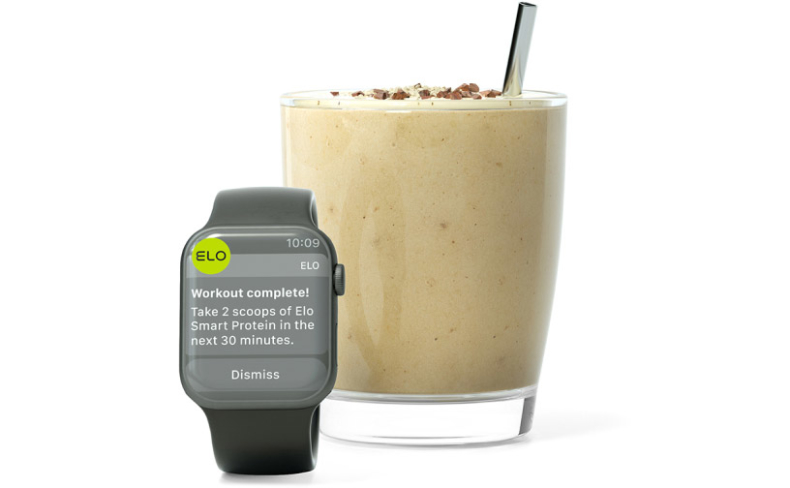
How Elo Smart Protein can help
Elo Smart Protein draws data from your wearables and fitness apps to provide specific protein dosing recommendations after every workout. These Smart Dosing recommendations are carefully calibrated based on the duration and intensity of your workout, your body weight, the contents of your blend, and the latest science on post-workout recovery. This way, you're never left guessing about how much protein you need and when.
Do protein shakes make you gain weight without working out?
Weight loss relies on energy input/output, meaning that the number of calories consumed should be less than the calories burned. On average, it takes 3,500 calories to burn one pound of fat, which means that both diet and exercise play important roles in weight loss [ 12 sleep stress
Weight gain happens when your energy balance is disrupted and you consume more calories than you burn. For example, if you stop exercising yet consume extra calories (including from protein shakes), your energy output will decrease while your energy input increases, which can lead to weight gain.
Protein shake before or after workout?
Research shows that drinking a protein shake before or after a workout can increase physical performance, recovery, lean body mass, muscle hypertrophy, and strength [ 13
While timing your protein intake may prove beneficial for athletes, experts agree that it’s not necessary for everyone, as taking protein pre- or post-workout may have the same effects [ 14 15 16
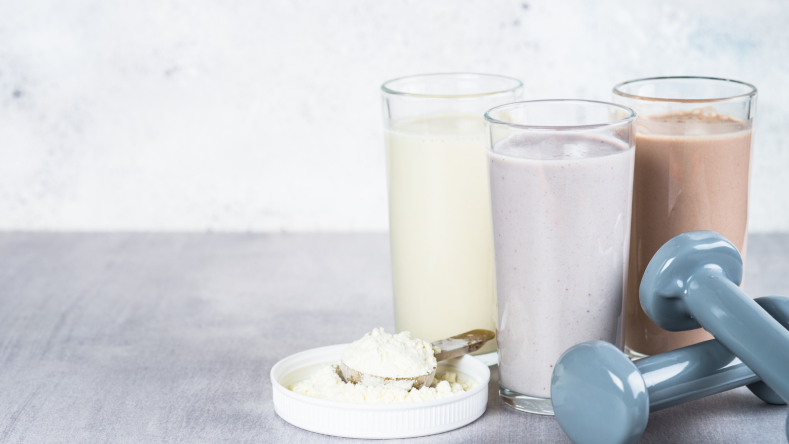
Should you take a protein shake before bed?
Studies show that taking a protein shake before bed can increase overnight muscle protein synthesis rates and have a beneficial effect on muscle mass and strength [ 17
Since sleep is arguably just as important for your recovery, performance, and muscle growth as exercise, it’s important to try and get 7-9 hours of sleep per night [ 18
How to blend a perfect recovery protein shake
You can make a perfect recovery protein shake by blending it with water or adding it to your favorite smoothie.
Other FAQs about protein
Summary
Protein shakes are a convenient supplement that have been shown to aid in muscle growth, performance, and recovery. Studies show that nutrient timing for protein can be beneficial depending on your goals, and can also be taken before or after a workout.
Protein shakes can be healthy for you if you choose a high quality one that has no added sweeteners and meets your dietary and nutrition needs. Elo Smart Protein is one such product, since it is backed by the latest science to provide specific nutrient dosing and help you recover faster. This way, you're never left guessing about how much protein you need and when.
Disclaimer: The text, images, videos, and other media on this page are provided for informational purposes only and are not intended to treat, diagnose or replace personalized medical care.
Key takeaways
Protein shakes are a convenient supplement that have been shown to aid in muscle growth, performance, and recovery.
Experts suggest that 1.2-1.7 g of protein/kg of body weight/day can be beneficial to increase muscle mass [
8
].Elo Smart Protein uses your goals, health history, workout data, and dietary preferences to craft the right protein blend for you and provide specific protein dosing recommendations after every workout.
Protein shakes can be good for you if you choose a high quality one with no added sweeteners (such as Elo Smart Protein).
References
Carbone, J. W., & Pasiakos, S. M. (2019). Dietary Protein and Muscle Mass: Translating Science to Application and Health Benefit. Nutrients, 11(5), 1136.
https://doi.org/10.3390/nu11051136
Morell, P., & Fiszman, S. (2017). Revisiting the role of protein-induced satiation and satiety. Food Hydrocolloids, 68, 199–210.
https://doi.org/10.1016/j.foodhyd.2016.08.003
Atherton, P. J., & Smith, K. (2012). Muscle protein synthesis in response to nutrition and exercise. The Journal of physiology, 590(5), 1049–1057.
https://doi.org/10.1113/jphysiol.2011.225003
Schoenfeld, B. J., & Aragon, A. A. (2018). How much protein can the body use in a single meal for muscle-building? Implications for daily protein distribution. Journal of the International Society of Sports Nutrition, 15, 10.
https://doi.org/10.1186/s12970-018-0215-1
Jäger, R., Kerksick, C. M., Campbell, B. I., Cribb, P. J., Wells, S. D., Skwiat, T. M., Purpura, M., Ziegenfuss, T. N., Ferrando, A. A., Arent, S. M., Smith-Ryan, A. E., Stout, J. R., Arciero, P. J., Ormsbee, M. J., Taylor, L. W., Wilborn, C. D., Kalman, D. S., Kreider, R. B., Willoughby, D. S., Hoffman, J. R., … Antonio, J. (2017). International Society of Sports Nutrition Position Stand: protein and exercise. Journal of the International Society of Sports Nutrition, 14, 20.
https://doi.org/10.1186/s12970-017-0177-8
Bauer, J., Biolo, G., Cederholm, T., Cesari, M., Cruz-Jentoft, A. J., Morley, J. E., Phillips, S., Sieber, C., Stehle, P., Teta, D., Visvanathan, R., Volpi, E., & Boirie, Y. (2013). Evidence-based recommendations for optimal dietary protein intake in older people: A position paper from the Prot-Age Study Group. Journal of the American Medical Directors Association, 14(8), 542–559.
https://doi.org/10.1016/j.jamda.2013.05.021
Carbone, J. W., & Pasiakos, S. M. (2019). Dietary protein and muscle mass: Translating science to application and Health Benefit. Nutrients, 11(5), 1136.
https://doi.org/10.3390/nu11051136
Protein intake for optimal muscle maintenance - ACSM. (n.d.). Retrieved December 8, 2022, from
https://www.acsm.org/docs/default-source/files-for-resource-library/protein-intake-for-optimal-muscle-maintenance.pdf?sfvrsn=688d8896_2
Stokes, T., Hector, A. J., Morton, R. W., McGlory, C., & Phillips, S. M. (2018). Recent Perspectives Regarding the Role of Dietary Protein for the Promotion of Muscle Hypertrophy with Resistance Exercise Training. Nutrients, 10(2), 180.
https://doi.org/10.3390/nu10020180
Kerksick, C. M., Arent, S., Schoenfeld, B. J., Stout, J. R., Campbell, B., Wilborn, C. D., Taylor, L., Kalman, D., Smith-Ryan, A. E., Kreider, R. B., Willoughby, D., Arciero, P. J., VanDusseldorp, T. A., Ormsbee, M. J., Wildman, R., Greenwood, M., Ziegenfuss, T. N., Aragon, A. A., & Antonio, J. (2017). International Society of Sports Nutrition Position Stand: Nutrient Timing. Journal of the International Society of Sports Nutrition, 14(1).
https://doi.org/10.1186/s12970-017-0189-4
Leidy, H. J., Clifton, P. M., Astrup, A., Wycherley, T. P., Westerterp-Plantenga, M. S., Luscombe-Marsh, N. D., Woods, S. C., & Mattes, R. D. (2015). The role of protein in weight loss and maintenance. The American Journal of Clinical Nutrition, 101(6).
https://doi.org/10.3945/ajcn.114.084038
Guth, E. (2014). Healthy weight loss. JAMA, 312(9), 974.
https://doi.org/10.1001/jama.2014.10929
Stark, M., Lukaszuk, J., Prawitz, A., & Salacinski, A. (2012). Protein timing and its effects on muscular hypertrophy and strength in individuals engaged in weight-training. Journal of the International Society of Sports Nutrition, 9(1).
https://doi.org/10.1186/1550-2783-9-54
Schoenfeld, B. J., Aragon, A., Wilborn, C., Urbina, S. L., Hayward, S. E., & Krieger, J. (2017). Pre- versus post-exercise protein intake has similar effects on muscular adaptations. PeerJ, 5, e2825.
https://doi.org/10.7717/peerj.2825
Lonnie, M., Hooker, E., Brunstrom, J., Corfe, B., Green, M., Watson, A., Williams, E., Stevenson, E., Penson, S., & Johnstone, A. (2018). Protein for life: Review of optimal protein intake, sustainable dietary sources and the effect on appetite in ageing adults. Nutrients, 10(3), 360.
https://doi.org/10.3390/nu10030360
Schoenfeld, B. J., Aragon, A., Wilborn, C., Urbina, S. L., Hayward, S. E., & Krieger, J. (2017). Pre- versus post-exercise protein intake has similar effects on muscular adaptations. PeerJ, 5, e2825.
https://doi.org/10.7717/peerj.2825
Snijders, T., Trommelen, J., Kouw, I. W. K., Holwerda, A. M., Verdijk, L. B., & van Loon, L. J. C. (2019). The Impact of Pre-sleep Protein Ingestion on the Skeletal Muscle Adaptive Response to Exercise in Humans: An Update. Frontiers in nutrition, 6, 17.
https://doi.org/10.3389/fnut.2019.00017
Watson NF, Badr MS, Belenky G, et al. Recommended amount of sleep for a healthy adult: a joint consensus statement of the American Academy of Sleep Medicine and Sleep Research Society. Sleep. 2015;38(6):843–844.

